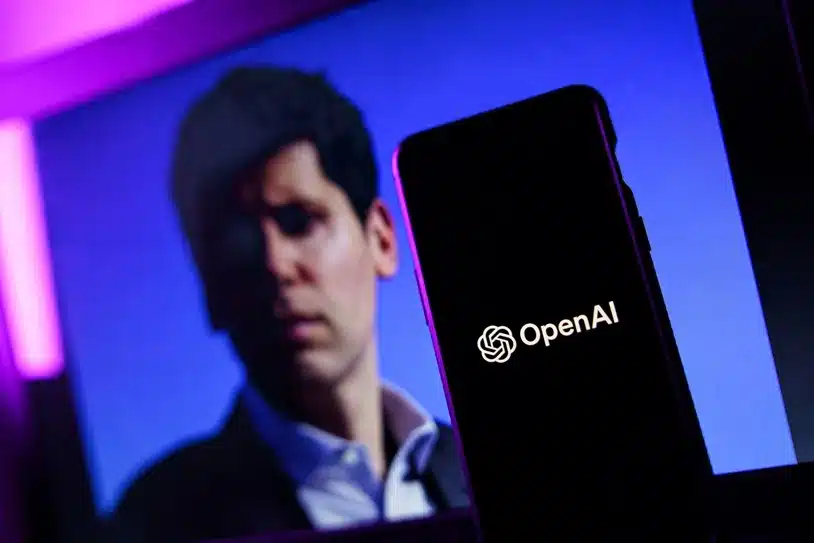OpenAI’s board has firmly rejected Elon Musk’s $97.4 billion takeover bid, stating the company is “not for sale.”
The rejection came after a group of investors, including Musk, offered to buy the nonprofit entity behind ChatGPT.
Bret Taylor, chair of OpenAI’s board, made it clear that the company would not entertain Musk’s offer, saying:
“Any potential reorganization of OpenAI will strengthen our nonprofit and its mission to ensure artificial intelligence benefits all of humanity.”
OpenAI’s legal team also responded, with attorney William Savitt telling Musk’s lawyer that the offer was “not in the best interests of OAI’s mission.”
The message was clear: OpenAI is committed to its nonprofit goals, and Musk’s bid was not aligned with those values.

Musk’s Conditions: A Move Against For-Profit Transition
Earlier in the week, Musk’s legal team made it known that he would withdraw his offer if OpenAI agreed to stop its plans to transition into a for-profit company.
This move comes after Musk’s ongoing lawsuit against OpenAI, which he filed last year over the company’s shift in structure.
For Musk, the issue is personal.
His involvement with OpenAI goes back to 2015 when he co-founded the company as a nonprofit alongside Sam Altman.
However, Musk’s exit in 2018, due to disagreements with the leadership, has led to a strained relationship with the company’s current CEO.
Altman has argued the nonprofit model is not sustainable for the scale of AI development OpenAI aims for, which is why the transition to a for-profit structure is necessary.
Altman’s Response: A Personal Clash
The rejection of Musk’s offer sparked a public back-and-forth between Altman and Musk.
Altman responded to Musk’s moves by implying that Musk’s actions were driven by insecurity over his own AI company, xAI.
He told Bloomberg:
“I don’t think he’s a happy person. I do feel for him.
“I wish he would just compete by building a better product, but I think there’s been a lot of tactics.”
The personal nature of the dispute reflects the ongoing tensions between Musk and Altman, dating back to Musk’s departure from OpenAI due to leadership differences.
Hiring? Post jobs for free with WhatJobs
Musk’s Bigger Agenda: Competition in AI
Musk’s offer and legal challenges are part of a broader rivalry between the tech mogul and OpenAI.
Musk has been outspoken about his concerns that OpenAI, originally founded with a mission of public benefit, is drifting too far toward profit motives.
This includes criticism of the company’s growing financial ties to investors like Microsoft, which has raised billions to fund OpenAI’s operations.
Musk’s focus on securing OpenAI’s nonprofit status is also tied to his own ventures in the AI space.
Musk’s company, xAI, is involved in developing AI technology and competing with the products that OpenAI has produced.
While Musk has publicly criticized OpenAI’s shift, Altman sees the transition as necessary to ensure that OpenAI remains competitive and able to expand in the fast-evolving AI industry.
The Role of Government and AI Investment
The debate over OpenAI’s future comes at a time when AI infrastructure is becoming a key focus for major governments and companies.
In January, President Donald Trump announced a $500 billion project, the Stargate Project, to build AI infrastructure in the US.
This collaboration between OpenAI, Oracle, SoftBank, and other entities signals the massive investments being made in the AI sector.
Musk didn’t hold back in criticizing the initiative on social media, mocking the companies involved by claiming, “They don’t actually have the money,” questioning the credibility of the financial backing behind the project.
Need Career Advice? Get employment skills advice at all levels of your career
The Battle for the Future of OpenAI
As the conflict between Musk and OpenAI continues to unfold, the question remains: Will Musk’s insistence on preserving OpenAI’s nonprofit mission ultimately influence its direction?
Or will Altman’s push for a for-profit transition ensure the company’s growth and dominance in the AI race?
OpenAI’s board has made its stance clear: it is not for sale and will continue to pursue its mission to ensure AI benefits humanity. However, with Musk’s considerable influence and legal maneuvers, the battle for control over the future of AI is far from over.




